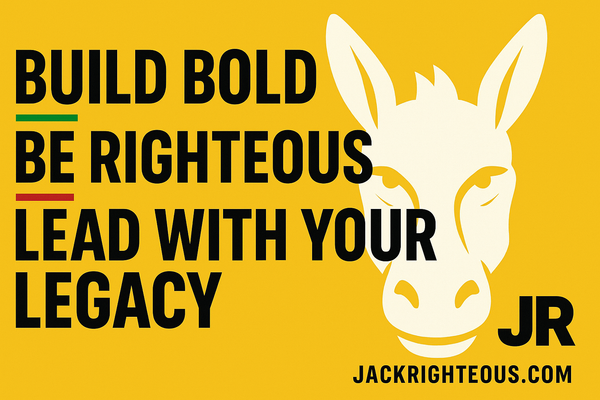
White Horseman: Christ or Antichrist?
Gary WhittakerThe White Horseman – Conqueror, Christ, or Antichrist?
From JackRighteous.com | Series: Decoding the Four Horsemen
Soundtrack to Prophecy: Listen While You Read
Before this first seal breaks—listen to a track forged in judgment and flame: "Fire Pon Rome", a militant anthem of truth, deception, and conquest masked in righteousness.
In Revelation 6:2, the first seal is broken—and a rider emerges on a white horse. He carries a bow, receives a crown, and goes out “conquering and to conquer.”
At first glance, this rider sounds like Christ. But the symbols spark a deeper question: Is this righteous victory—or the beginning of deception?
Revelation 6:2 – The Rider Appears
“And I looked, and behold, a white horse, and its rider had a bow; and a crown was given to him, and he came out conquering, and to conquer.” — Revelation 6:2 (ESV)
We are told four things:
- He rides a white horse
- He carries a bow
- He receives a crown
- He goes out to conquer
The Symbol of the White Horse
White often symbolizes:
- Purity
- Victory
- Righteousness
Yet color alone is not confirmation. Satan appears as an angel of light. This rider may imitate righteousness—not embody it.
The Bow – Power Without Peace
No arrows are mentioned. Scholars suggest:
- Power through threat
- Dominance via fear or deception
- Ideological or political conquest
It’s conquest disguised as diplomacy.
The Crown – Given, Not Taken
This rider receives a stephanos (victor’s wreath), not a diadem (royal crown).
- It’s granted, not seized
- It’s temporary, not eternal
- It signals permission to rule, not absolute sovereignty
Three Main Interpretations
1. Christ or the Gospel
- Color and mission mirror Revelation 19
- Early interpreters said this was Christ spreading the Gospel
- Weakness: Christ appears later with clearer power
2. The Antichrist or False Messiah
- Mimics Christ: white horse, crown, conquest
- Starts chain of judgment (war, famine, death)
- Fits 2 Thessalonians 2:3–4’s “Man of lawlessness”
3. Symbol of Empire and False Peace
- White horse = propaganda or colonialism
- Bow = intimidation without war
- Crown = permission granted by earthly powers
Which View Is Correct?
There’s no settled answer. And maybe that’s the point. This figure may symbolize any power cloaked in righteousness, but driven by conquest.
He is not just a warning about the future—he’s a mirror of the present.
Why the First Rider Still Matters
- Don’t trust appearances of righteousness
- Don’t confuse peaceful conquest for truth
- Don’t follow crowns granted by compromised systems
The White Horseman starts the unraveling—not with violence, but seduction.
Further Reading

